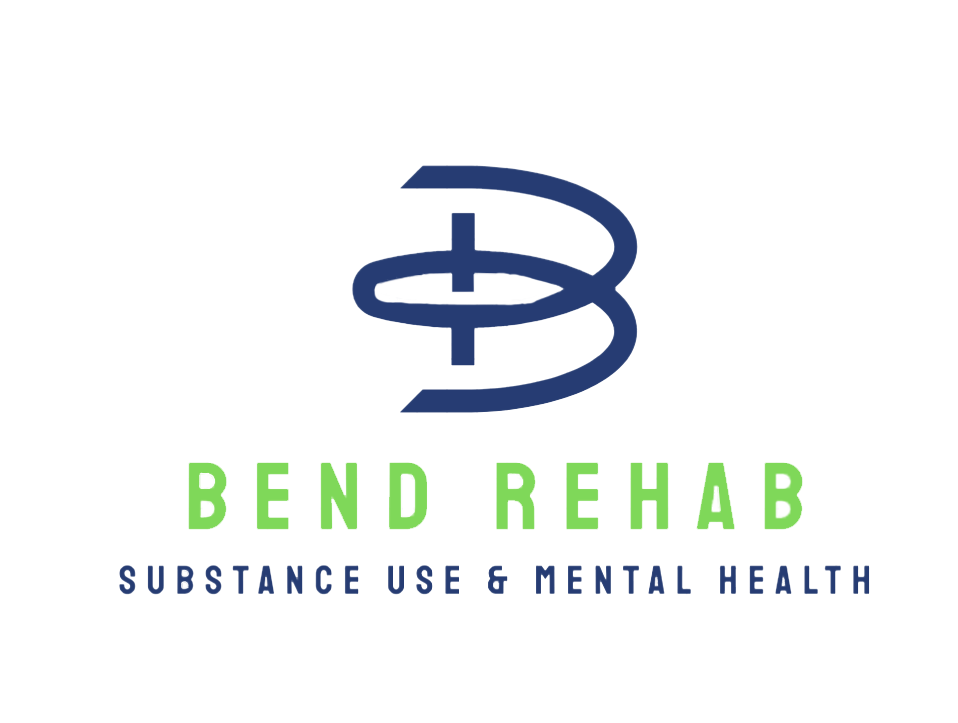Teen Rehab in Bend OR
No parent wants to face the reality that their teen might be struggling with substance abuse. Yet, recognizing the importance of early intervention can make all the difference in shaping a brighter future. The city of Bend, OR, provides a range of teen-focused rehab options designed to help young people overcome addiction and rebuild their lives. This guide is designed to empower parents with knowledge about signs of substance abuse, causes, treatment options, and how to support their child during their recovery. By understanding the resources available locally, you can give your teen the best possible chance to heal and thrive.
Identifying Signs of Substance Abuse in Teens
Recognizing the signs of substance abuse early is a critical step toward taking quick, decisive action and providing the necessary support to prevent the issue from escalating. Signs can include changes in behavior, mood swings, withdrawal from loved ones, or a decline in physical appearance and performance at work or school. Early detection allows for timely intervention, which is crucial in addressing the problem effectively and increasing the chances of recovery. By identifying the issue early, you can help individuals access the resources, treatment options, and support systems they need to regain control of their lives and work toward long-term health and well-being.
Behavioral Changes to Watch For
- Sudden Mood Swings or Aggression: Look for unexplained anger, irritability, or withdrawal. This behavior often accompanies substance abuse.
- Secretive Behavior: If your teen starts hiding things or frequently lying about their whereabouts, it might be a red flag.
- Loss of Interest: Noticeable drop in enthusiasm for hobbies or activities they once enjoyed.
Physical Signs and Symptoms
- Changes in Appearance: Poor hygiene, unexplained weight loss, or bloodshot eyes.
- Drug Paraphernalia: Items like pipes, rolling papers, or vape cartridges could indicate substance use.
- Health Issues: Symptoms such as nausea, chronic fatigue, or nosebleeds might be associated with substance use.
Academic and Social Life Impact
- Declining grades and frequent truancy are often early signals of substance abuse.
- They may start distancing themselves from old friends and tend to associate with a new, questionable social circle.
If you notice these signs, consider reaching out to a mental health professional or teen rehab in Bend, OR, to begin the conversation.
Understanding the Causes of Teen Substance Abuse
Substance abuse often stems from underlying issues such as trauma, mental health struggles, or unresolved emotional pain that require careful examination and professional treatment. These root causes may include experiences of childhood abuse, neglect, chronic stress, or untreated mental health conditions like anxiety, depression, or PTSD. Without addressing these deeper issues, individuals may find themselves trapped in a cycle of addiction, using substances as a way to numb emotional pain or cope with overwhelming feelings. Addressing these root causes through therapy, counseling, and support networks is essential to creating a lasting path to recovery. This holistic approach not only helps individuals overcome addiction but also empowers them to regain control over their lives, build healthier coping mechanisms, and move forward with hope and resilience.
Peer Pressure and the Desire to Fit In
Many teens struggle with the urge to belong, often leading them to seek acceptance from their peers. This strong desire for social connection can make them more vulnerable to experimenting with substances as they try to fit in or gain approval. Peer pressure and social influence play a powerful role in shaping their choices, sometimes pushing them toward risky behaviors in an effort to feel included or valued within a group.
Stress, Anxiety, and Depression
Substance abuse frequently coincides with underlying mental health issues such as depression, anxiety, or even trauma. Teens often turn to drugs or alcohol as a way to cope with overwhelming emotions or to escape from feelings of sadness, stress, or loneliness. Unfortunately, this can create a dangerous cycle where the substance use worsens their mental health, leading them to rely even more heavily on these substances. Over time, this can result in dependency, making it even harder to address the root causes of their struggles.
Family History and Environmental Factors
Genetics and a family history of substance abuse can significantly increase the likelihood of addiction in teenagers, as certain genetic factors may make them more vulnerable to addictive behaviors. Additionally, growing up in a household where substance abuse is present can normalize these behaviors, further increasing the risk. Exposure to family conflict, frequent arguments, or chaotic home environments can also exacerbate this risk by creating stress and emotional instability, which may drive teenagers to seek coping mechanisms, such as substance use. These environmental and genetic factors often work together, creating a complex web of influences that heighten the likelihood of addiction during adolescence.
Overview of Teen Rehab Programs in Bend, OR
Bend offers a comprehensive range of rehabilitation opportunities specifically tailored for teenagers, recognizing the unique needs and challenges they face during this critical stage of life. These programs are carefully designed to address not only their physical recovery but also their mental and emotional well-being, creating a holistic approach to healing. Through a combination of therapy, counseling, skill-building activities, and peer support, Bend helps teenagers develop resilience, improve their coping mechanisms, and build a strong foundation for long-term recovery. With a supportive and understanding environment, Bend empowers teens to overcome obstacles and thrive in their journey toward a healthier future.
Types of Programs Available
- Inpatient Programs: Provide structured, intensive treatment in a live-in facility, ideal for severe cases.
- Outpatient Programs: Allow teens to stay at home while attending therapy and treatment sessions. This flexibility can help them maintain school attendance and family connections.
Specialized Treatments
Teen rehab in Bend, OR, often include tailored therapies designed to support the unique needs of teens during their recovery journey. These programs typically feature individual counseling to provide personalized guidance, group therapy sessions to foster peer support and shared experiences, and holistic approaches like art or music therapy to help teens express themselves creatively and process their emotions. Many programs also incorporate family counseling and outdoor activities, leveraging the area’s natural beauty to promote healing and personal growth.

How to Choose the Right Teen Rehab in Bend, OR
Choosing a teen rehab in Bend, OR can feel daunting, especially with so many options available, but taking a careful and informed approach will help you make the best decision. Consider factors such as the type of treatment offered, the program’s success rates, and whether it aligns with your specific needs and goals. Taking the time to research and ask questions can make all the difference in finding the right path to recovery.
Assessing Your Teen’s Needs
Consider these questions when speaking to professionals:
- What’s the severity of my teen’s substance use?
- Do they have co-occurring mental health conditions?
- What type of environment will they thrive in—residential or outpatient?
Comparing Costs, Locations, and Philosophies
- Investigate whether programs accept insurance or provide sliding scales for affordability.
- Balance the location’s convenience with program quality.
- Understand the facility’s philosophy—is it punitive, or does it focus on healing and empowerment?
Visiting Facilities
Look for clean, welcoming spaces with compassionate and knowledgeable staff who are dedicated to supporting teens through their recovery journey. Pay attention to whether their programs are designed to encourage family involvement, as this is a key aspect of successful teen recovery. Family participation can provide a strong support network, helping to foster better communication, understanding, and long-term healing.
Preparing Your Teen for Rehab
Your teen might fear or resist the idea of rehab, which is completely natural. It’s a big step that can feel overwhelming, intimidating, or even scary, especially if they don’t fully understand what to expect. They might worry about being away from home, adjusting to a new environment, or facing challenges head-on. Taking the time to prepare them beforehand by having open and honest conversations about what rehab involves can make a big difference. Discussing what they can expect, addressing their specific concerns, and offering reassurance can help ease their anxieties. Let them know that rehab is not about punishment, but about helping them build the tools they need to grow, heal, and succeed. This preparation can help them feel more supported and confident as they navigate the process, making the transition smoother for everyone involved.
Having Open Conversations
Approach the subject calmly and empathetically, ensuring that your tone is supportive and non-judgmental. Focus on their needs and experiences rather than assigning blame or making them feel defensive. Take time to plan the conversation, framing it around positive affirmations such as, “We want to help you feel better and succeed,” to create a safe and open environment. Be patient, listen actively, and show genuine concern for their well-being, making it clear that you’re there to offer support and work together toward a solution.
Setting Expectations and Preparing Emotionally
Explain what rehab entails, including the programs and support they’ll receive to help them recover and build a healthier future. Let them know that rehab is a safe space designed to provide guidance, tools, and care tailored to their needs. Reassure them of your unconditional support every step of the way. Address their fears, such as concerns about leaving home or facing judgment, and help them view rehab as an opportunity for growth and healing rather than a punishment. Remind them that seeking help is a brave and positive step forward.
What to Pack for Rehab
Help your teen pack essentials such as comfortable clothes suitable for various activities, toiletries like toothbrushes, toothpaste, and personal hygiene items, as well as any prescribed medications they may need. It can also be a good idea to include a small first-aid kit for minor scrapes or headaches. Additionally, consider packing a sentimental item from home, like a favorite stuffed animal, a family photo, or a cozy blanket, to provide extra comfort and a sense of familiarity while they’re away. Supporting your teen during rehab your role as a supportive figure during and after rehab is crucial.
Communication Tips
Respect their need for boundaries, but remain actively involved in their journey. Let them know you’re there to support them without being overbearing. Keep open lines of communication by checking in regularly and listening without judgment, while also encouraging them to take ownership of their recovery process. Offer help when needed, but allow them the space to make decisions and grow independently, fostering both trust and progress.
Participating in Family Therapy Sessions
Many rehab centers in Bend incorporate family therapy as part of their program, recognizing the importance of a strong support system in the recovery process. Family therapy provides a structured environment where loved ones can address unresolved conflicts, learn healthier communication skills, and better understand the challenges of addiction. This can be a valuable opportunity to foster trust, rebuild relationships, and promote healing within the family unit, ultimately creating a more supportive foundation for long-term recovery.
Encouraging Healthy Habits Post-Rehab
Once your teen completes rehab, it’s important to encourage positive routines that support their recovery journey. Activities like regular exercise can boost their mood and reduce stress, while journaling provides a healthy outlet for processing emotions and reflecting on their progress. Attending support groups allows them to connect with others who understand their experiences, offering encouragement and accountability. These habits not only help maintain their sobriety but also promote long-term mental well-being and a healthier lifestyle overall.
Conclusion
Watching your teen battle substance abuse is an incredibly heart-wrenching experience, but taking the step to seek help is the beginning of a journey toward a brighter, healthier future. Bend, OR, offers a variety of teen rehab options designed to provide specialized care and support for young individuals struggling with addiction. From inpatient facilities to outpatient programs and counseling services, these resources can help your child reclaim their life and thrive again. It’s important to remember that recovery is a marathon, not a sprint. Healing takes time, effort, and patience, and there is absolutely no shame in reaching out for help. Local resources and professional programs are equipped with the tools and expertise needed to guide your teen through this challenging process. For more assistance reach out to our team today by calling 1 (541) 802-7214 or click Bend Rehab . Your commitment, guidance, and unconditional love can be some of the most powerful tools in your teen’s recovery. With these, coupled with the right professional help, your child can overcome these challenges and move toward a healthier, more fulfilling life. Be proactive, stay hopeful, and know that brighter days are ahead.




